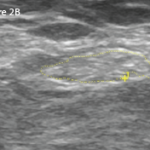
Shidlovski / shutterstock.com
After total hip or knee arthroplasty, flares are common in patients with rheumatoid arthritis (RA), according to a recently published study.1 Higher disease activity at baseline appears to be linked to flares, but use of such medications as biologics and methotrexate did not independently predict flaring.
“Contrary to the notion that patients with established RA have ‘burnt out’ or inactive disease at the time of arthroplasty, the majority of patients with RA undergoing arthroplasty are taking DMARDs [disease-modifying anti-rheumatic drugs] and biologics to control joint inflammation,” wrote Susan M. Goodman, MD, of the Department of Rheumatology and Orthopedics at the Hospital for Special Surgery in New York City, and fellow researchers. They cited research that found 40% of patients with RA having total knee replacement and 34% of those having hip replacement were being treated with biologics, while up to 67% were being treated with DMARDs. “These therapies are often stopped prior to surgery, a practice that may increase the risk of flare in the perioperative period,” the researchers wrote.
Discontinuation of biologics before surgery is standard because of the increased risk of prosthetic joint infection in patients with RA. Both the ACR and the American Association of Hip and Knee Surgeons have weighed the risk of flares against the risk of infection, the researchers reported.2,3 RA flares frequently occur, and this is commonly linked to medication withdrawal. The resulting pain and fatigue may make rehabilitation more challenging, but this is weighed against the increased infection risk posed by continuing medications.
The Study
Researchers in this prospective study focused on RA patients who were recruited prior to elective total knee arthroplasty and total hip arthroplasty at the Hospital for Special Surgery. Although 23,584 patients presented in the study’s time period for total joint arthroplasty, 23,406 did not meet the inclusion/exclusion criteria or they declined to participate. Ultimately, the study included 120 patients in the six-week analysis.
Characteristics of RA were evaluated at zero to two weeks before elective knee and hip replacement, and at six weeks postoperatively. Patients also answered questions about their disease activity, including self-reported joint counts and flare status weekly for six weeks. Patients stopped using biologics before surgery, but glucocorticoids and methotrexate were typically continued.
Data collected at baseline included age, sex, comorbidities, disease duration, medications, the MD Health Assessment Questionnaire (MD-HAQ), Routine Assessment of Patient Index Data (RAPID)-3 and the 28-joint Disease Activity Score (DAS28). Both serologic status for rheumatoid factor and anticitrullinated protein antibody were obtained, as were joint counts at each visit (excluding the operated joint), inflammatory markers, DAS28, MD-HAQ and RAPID-3.


